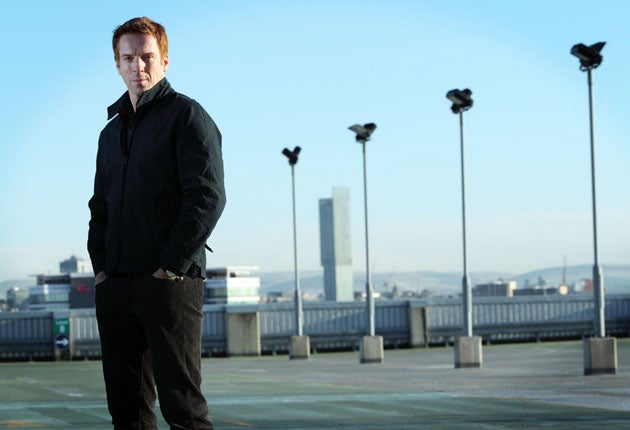Stolen, BBC1, Sunday<br/>The Killing, Channel 4, Thursday
A drama on the terrible issue of child trafficking deserves better than to have as its hero the most characterless TV character this side of Christine Bleakley

If anyone knows how to calibrate challenging fare for prime-time audiences, it's screenwriter Stephen Butchard.
Five Daughters, his docudrama about the Ipswich prostitute murders, was the best piece of television I saw last year: a gripping, complex portrait of wasted lives all the more startling for its placement across three nights on BBC1.
Which is what made last week's Stolen such a disappointment. Here, once again, Butchard gave dramatic voice to society's invisible and exploited – the 1.2 million children enslaved by the global trafficking trade each year. And more specifically, with a script that interwove three tales of trafficked youngsters in Britain, he emphasised the scale of the problem in our own backyard. There was Rosemary, a Nigerian girl intercepted by police off the plane, and Kim Pak, a Vietnamese teenager incarcerated in the sunlight-deprived hinterland of a residential cannabis farm. Most harrowing, though, were the experiences of Georgie, a Ukrainian youngster whose excitable spirit was duly crushed by his thankless labour in a squalid sandwich factory.
And for a 90-minute drama, that should have been more than enough material. So why the bogus thriller facade, barely propped up by Damian Lewis's detective inspector? To make it fly with short attention spans, presumably. But with his mildly dogged demeanour, moppety daughter, and standard-issue personal/professional conflicts, Lewis was lumbered with the most characterless TV character this side of Christine Bleakley. Throw in some lame family-in-peril suspense, and his front-and-centre presence became more irritating with every furrowed look.
Irritating, also, because this genre padding left the rightful protagonists struggling to gain a narrative footing. Cursorily sketched, their storylines were also riddled with plot holes – not least all three's unfeasibly assured grasp of English. To pick up on some other niggles: why did Kim Pak, on escaping his suburban prison, choose not to run but crow about it from the rooftops? And what of Georgie's death by unprovoked street stabbing: a tangential comment on youth violence or shoddy emotional manipulation?
It didn't help that so much unnecessary effort had been expended on the style of the thing – from split screen editing and self-conscious lighting to earnestly ululating ambient music. Indeed, its contrivances continued right through to the end credits. On the one hand, there was Nelson Mandela's cutting adage: "There can be no keener revelation of a society's soul than the way in which it treats its children". On the other, a sequence of children smiling at the camera as if plucked from a Benetton advert. It was a pat parting shot for a drama that raised valuable issues without ever making them resonate.
"Isn't this just Twin Peaks without all the weird, fun stuff?" asked my housemate as we watched The Killing, blithe to the cultural phenomenon in her midst. For those who have avoided meejah hype, this is the US remake of the slow-burning Danish whodunnit roundly proclaimed the best thing since The Wire when it aired on BBC4 earlier this year. And as an ardent fan of the original, my devotion fostered through a diet of 3am iPlayer binges, I had my critical knives out for this impudent impostor.
Boring to report, then, that it's pretty good. Sure, wildly dysfunctional detective/goddess Sarah Lund has turned into the worryingly functional Sarah Linden: she even enjoyed a morning jog, for heaven's sake. But that aside, Seattle is a suitably rain-lashed replacement for Copenhagen while the original's air of grandiose murkiness has survived the Atlantic crossing – probably helped by the fact that key scenes in last week's opener were replicated almost shot for shot. Though, come to think of it, remove the fallacious air of artiness afforded by subtitles, and suddenly The Killing does seem a bit Twin Peaks without the weird stuff: the emperor's new cop show, if you will. Now excuse me while I chase another bandwagon.
Join our commenting forum
Join thought-provoking conversations, follow other Independent readers and see their replies
Comments
Bookmark popover
Removed from bookmarks